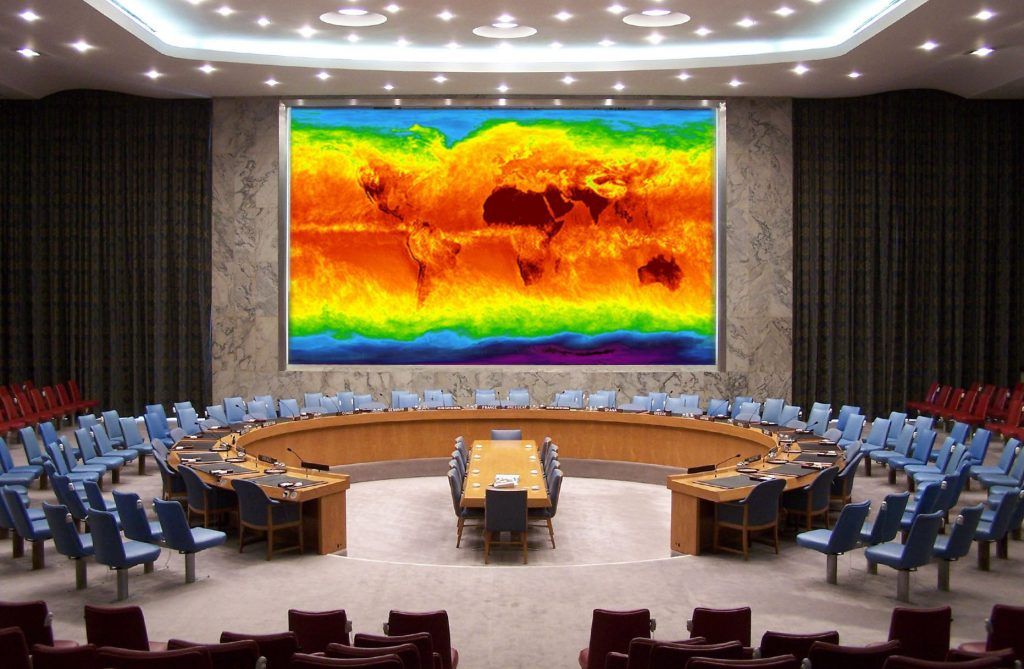Alice Hill, Stanford University, Research Fellow at the Hoover Institution, EXPERT COMMENTARY
By now everyone has heard that President Donald Trump’s Executive Order on Promoting Energy Independence and Economic Growth seeks to scrap the prior administration’s signature effort to curb carbon emissions: the Clean Power Plan. Less well known, but also enormously consequential, are the elements of the executive order that seek to dismantle federal efforts to help states and local communities deal with the damaging impacts of climate change.
Trump’s climate order takes aim at executive actions designed to increase preparedness for climate risks. Specifically, the new executive order revokes President Barack Obama’s Executive Order on Preparing the Nation for the Impacts of Climate Change, as well as his Presidential Memorandum on Climate Change and National Security. It also orders the Council on Environmental Quality to rescind its guidelines requiring federal agencies to consider the impacts of climate change during the environmental assessments that agencies conduct when they, for example, issue permits for major infrastructure projects.
Trump went one step beyond revocation and rescission: He also ordered the heads of all agencies to ferret out “any existing agency actions related to or arising from” Obama’s orders and guidelines—and to “suspend, revise, or rescind” any such actions. Why does this matter? It matters because these actions began the arduous work of constructing a lifeline for state and local governments to deal with the impacts of climate change—impacts like sea-level rise, increased frequency of heavy downpours, prolonged periods of excessively high temperatures, an increase in wildfires, and more severe droughts.
Take, for example, Obama’s executive order on preparing for the impacts of climate change: It ordered federal agencies to remove barriers that discourage investments in the nation’s resilience; to reform policies that increase the vulnerability of communities to climate-related risks; to identify opportunities to support more climate-resilient investments by state and local governments; and to develop and provide authoritative, accessible, and usable data, information, and decision-making tools for climate preparedness. Trump just ordered those federal efforts to halt. But without them, communities are largely left to their own devices to figure out their risks and come up with adaptation solutions. Meanwhile, federal actions that increase vulnerability continue unabated.
By revoking Obama’s memorandum on national security and climate change, Trump has summarily rejected the widely accepted analysis that climate impacts threaten our national security. In doing so, he ignores every major strategic document issued by the Departments of Defense, Homeland Security, and State; the collective assessment of all US intelligence agencies; and the public statements of every Secretary of Defense in the last decade, including his own. His action puts the nation ever more squarely in harm’s way. It increases the nation’s exposure to wide-ranging security challenges including threats to the stability of countries, heightened social and political tension, mass displacement of people, adverse effects on food prices and availability, increased risk to human health, negative impacts on investments and economic competitiveness, and potential sudden climatic shifts.
At the end of the day, Trump’s executive action has simultaneously undermined the United States’ ability to cut harmful emissions, and to prepare for the impacts that those harmful emissions cause. A decade ago, the title of a United Nations Foundation report succinctly identified what we should do when confronting the challenge of climate change: avoid the unmanageable, and manage the unavoidable. With the stroke of a pen, Trump has directed the federal government to do neither.
 Security council and climate change. Illustration courtesy bwats2 and AIRS
Security council and climate change. Illustration courtesy bwats2 and AIRS 













